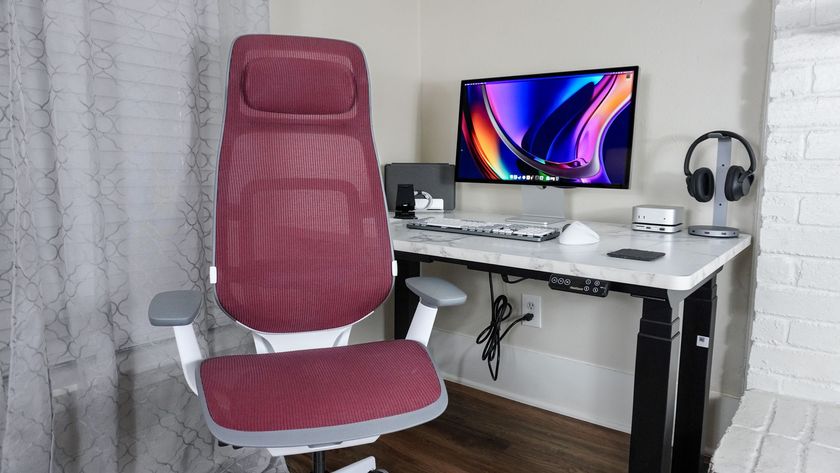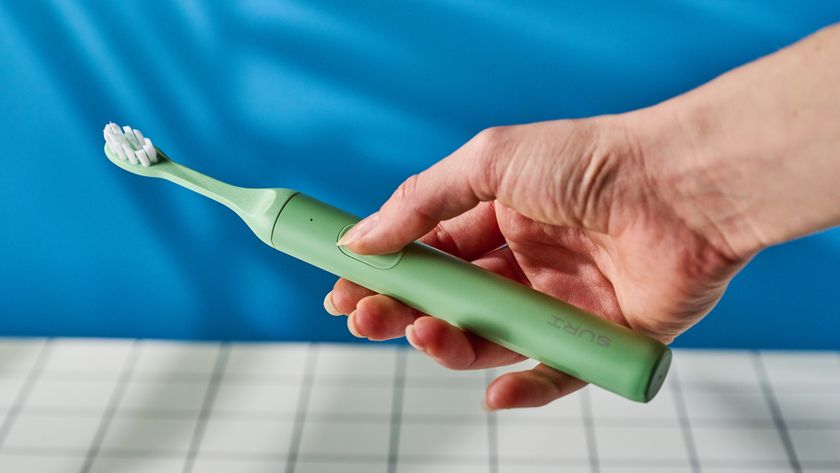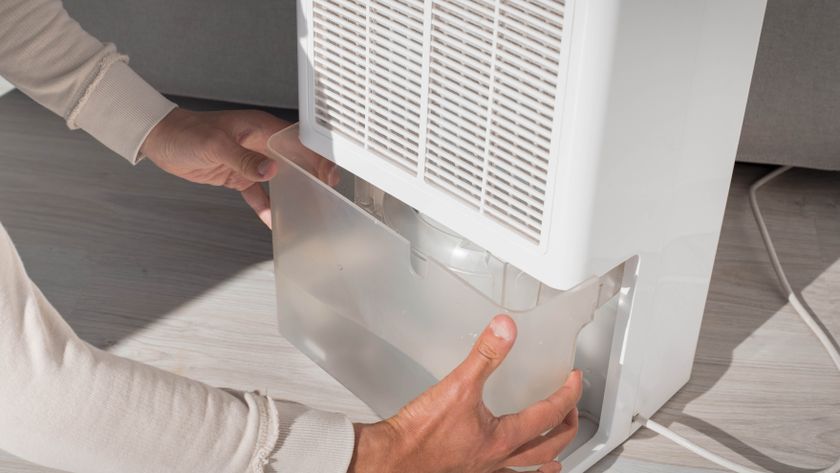5 interior design ideas that can improve your mental health
Boost your mood in your home
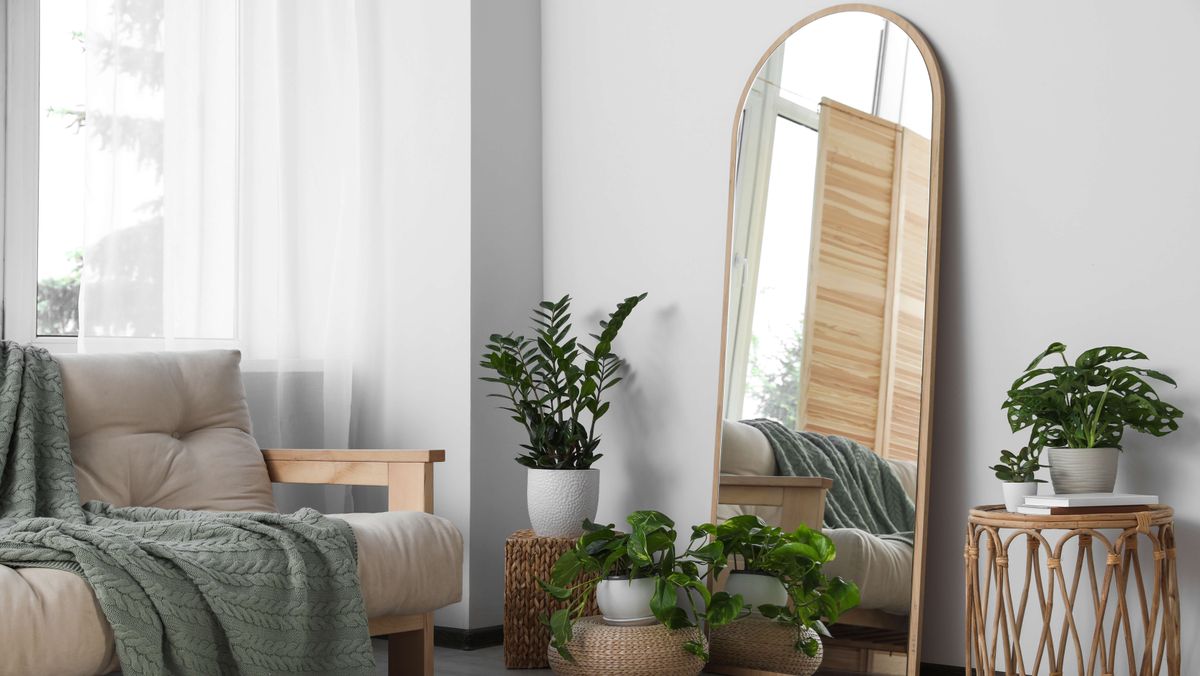
For the majority of us, our home is our sanctuary: the place where we come to at the end of the day to rest and relax. But it’s also the place where many of us spend a lot of time, thanks to remote and hybrid working. Many people are having to adjust to home being their safe haven and their office.
As our homes become spaces of multiple functions, it seems even more important to create an environment that improves and nurtures our mental health and overall well-being.
From the color you paint your walls to the use of light and how you arrange your furniture, your interior decor choices can play a big part in your health. Here we look at how you can embrace interior design to improve your mood.
1. Natural light
Exposing yourself to natural light is known to increase the “happy hormone” serotonin. The National Library of Medicine reports that serotonin increases when exposed to sunlight. And we all know how much better we feel when we get outside on a sunny day. It’s the same when we are inside our homes.
Opening up window treatments during the day will allow natural sunlight to flood in, while using light colors on walls and floors will help reflect the natural light. It's best to avoid dark colors on your walls and within your furnishings as they are non-reflective and have the reverse effect. Then, if you still want to inject a deep color into your scheme you can use it as an accent in cushions and accessories.
One way to counteract a dark interior is to carefully position mirrors to capture and reflect natural light from windows. It's a technique that can be used whatever color palette you choose.

2. Color magic
According to color psychology, color has the power to boost mood and reduce stress, improving our mental and physiological health. “From the shade of the paint on the walls to the color of your soft furnishings, they have the power to transform how you feel,” says Sarah Noyce, owner of the homeware store Salt and Steel.
Sign up to get the BEST of Tom's Guide direct to your inbox.
Get instant access to breaking news, the hottest reviews, great deals and helpful tips.
A neutral palette of earthy tones works particularly well. “Rooted in nature, brown and beige tones bring with them a sense of energy, strength and calmness that works wonders in the homes,” she says.
But what about white? Although white can appear stark, Noyce says it’s associated with pureness and clarity and can evoke feelings of newness and cleanliness. “Although some may not consider white a colour and instead more of a shade, white is still powerful for lifting spirits when we’re feeling down.”
One of my personal favorites is green, which I find particularly calming when used within interior settings, and it helps mood as it represents natural environments, harmony and peace. “Green is considered one of the most restful and relaxing colours to the human eye,” says Noyce, “making it key to creating a tranquil environment in the home.”
Besides creating a calm environment with restful colors, our moods can be boosted with vibrant tones of yellow. This cheery color is known to create positivity, making you feel uplifted and energized. While you might prefer your bedroom to be in more muted shades, yellow is a good color to use in creative spaces, or where you spend time in the morning. I’ve used accents of yellow in my living room in the curtain, cushions and artwork.
3. Enjoy nature inside

Houseplants are growing in popularity and we are seeing more and more homeowners bringing the outside into their homes. Apart from adding greenery to our interiors, houseplants will ease stress and boost your mood and some houseplants can make your house smell nice too.
Besides houseplants, other natural elements can bring the outside in. You can benefit from freshly cut flowers straight from your yard in the spring and summer. Tulips are a particular favorite of mine and I’ve previously shared a few tricks on how to keep cut tulips fresh for longer. When the seasons change, and you can no longer cut fresh flowers in your yard, think about adding decorative branches or cutting stems from shrubs, such as hydrangeas, which have a dramatic flower head.
4. Gain balance
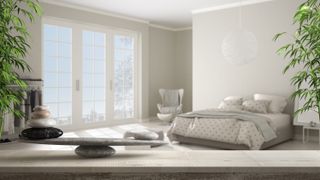
Introduce feng shui into your home to create harmony and balance into your environment. In its modern form, the Chinese principle of feng shui is based on rearranging furniture and items in your home to find equilibrium. It will allow you to realign your home, declutter and start anew.
Consider chi, which refers to the energy moving around your home. Good chi is achieved where energy can move around your home freely, without being blocked by clutter or furniture blocking pathways. Conversely, empty rooms can allow chi to escape too quickly.
Ensure that furniture and objects in our home are symmetrical and evenly balanced. Having too much clutter can block the energy paths. The shape and size of furniture also play a part, with items that are proportional to each other helping to create balance.
5. Declutter for a tidy home

Cluttered or cramped spaces can lead to stress and anxiety and are detrimental to our mental health. In contrast, a healthy space can boost your mood and creativity levels.
The well-known KonMari method to tidy and declutter your home is based on the principle of only keeping items that ‘spark joy’. And is one technique that’s worth embracing to improve your indoor environment.
Finding time to declutter your home regularly can help you stay on top of your space. When I recently decluttered my kitchen in a morning, I found the best method was to set aside a specific time to concentrate on the task to avoid being distracted. Then, once you’ve got on top of the clutter and have achieved a tidy home, you can follow the ‘one in, one out’ method. If you bring something into your home, something else has to go out.
More from Tom's Guide

Camilla Sharman has worked in publishing and marketing for over 30 years and has covered a wide range of sectors within the business and consumer industries both as a feature, content, and freelance writer.
As a business journalist, Camilla has researched articles for many different sectors from the jewellery industry to finance and tech, charities, and the arts. Whatever she’s covered, she enjoys delving deep and learning the ins and out of different topics, then conveying her research within engaging content that informs the reader. In her spare time, when she’s not in her kitchen experimenting with a new recipe, you’ll find her keeping fit at the gym. In the pool, stretching at a yoga class, or on a spin bike, exercise is her escape time. She also loves the great outdoors and if she’s not pottering about in her garden, she’ll be jumping on her bike for a gentle cycle ride.
